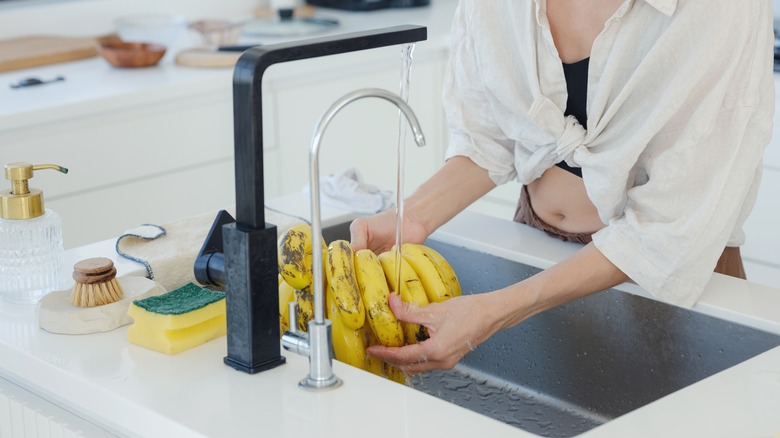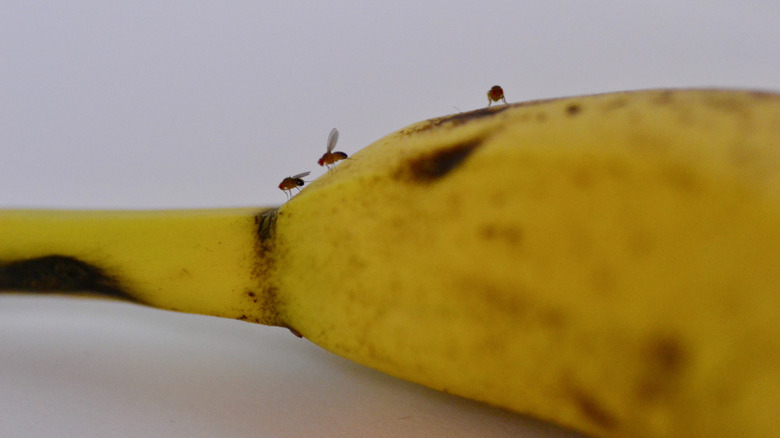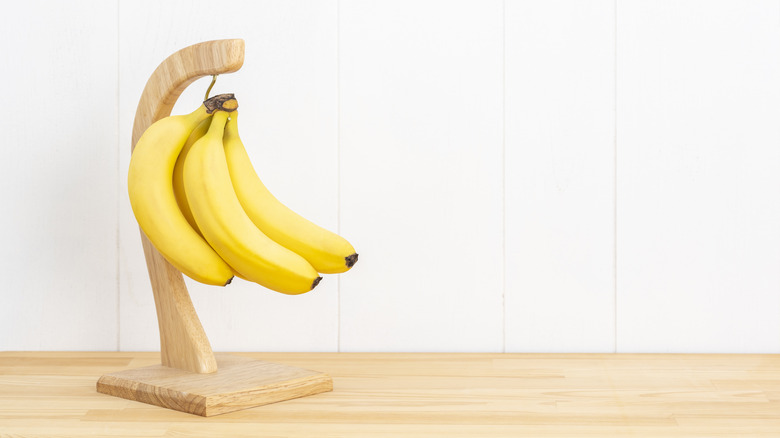Why You Should Wash Your Bananas After Buying Them
Yes, you should be washing your bananas. Wait, what? Bananas are one of the most commonly eaten fruits, with India producing the most by a landslide, but what most people don't know is that washing your bananas after coming home from the grocery store or farmers market has several benefits.
Just like with any other fruit or vegetable, washing your bananas is an important step to rid them of anything you wouldn't want in your body -– dirt, pesticides, illness-causing microbes, and even bugs. It might seem unnecessary due to the banana's thick peel that is discarded, but once you peel that banana or cut into it, those contaminants can reach the part of the banana you eat.
Because you typically don't know where all your produce has been, who and what has touched it from farm to your kitchen, it's best to wash all your produce, bananas included. You may even find that you have fewer pests in your kitchen as a result.
Washing bananas can help keep fruit flies at bay
While washing bananas is important to rid the fruit of dirt and microbes, it has the added benefit of preventing fruit flies in your kitchen. According to the Massachusetts Department of Environmental Protection, we can unknowingly bring these flies into our homes as they commonly lay their eggs on banana skins. This is because fruit flies are attracted to the scent of ripe or overripe fruit.
If only the dirt and microbes were a threat, you could wash your bananas one at a time right before enjoying that first bite. However, the presence of fruit fly eggs means you'll want to wash them as soon as you bring them home. This will get the eggs off the surface of the banana and prevent flies from infesting your kitchen.
Because the flies are attracted to the sugars in fermenting fruit, consider keeping your bananas in the fridge if they're starting to brown. Of course, you can also freeze them for later by placing washed, peeled bananas (whole or sliced) on a tray, so they don't get stuck together in the freezer. After freezing solid, put the bananas into a resealable bag, making sure to remove all the air, and they will last for up to six months.
How to wash and store your bananas
You don't need anything special to wash your bananas — just some cool running water. Simply hold the bunch of bananas under the faucet, let the water run over it, and rinse off all the dirt and bad stuff. If you want to really make sure it's clean, use a produce brush to gently scrub the surface. Then, set the fruit to dry on a towel or pat everything dry.
For washing any produce, bananas included, you should avoid soaking it in water. If you do, it can lead to cross-contamination. Sure, you got the dirt and eggs off of one banana, but now the muck is just floating around until it can land on another one, and nothing is really getting clean. Instead, opt for running water or using a colander if you need to.
Once your bananas are clean and dry, you'll want to make sure to store them so that they don't bruise – which will actually help prevent them from ripening too quickly. Yes, bruised fruit actually ripens faster due to increased ethylene, the gas that causes browning. Hanging bananas, rather than tossing them into a fruit bowl, can prevent bruising and slow spoiling.



